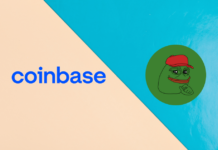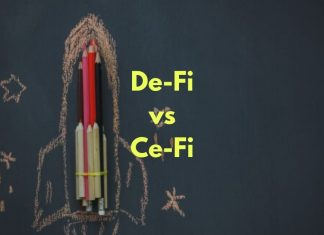In the previous part of this series, we explored the benefits that Polkadot offers as a platform to the projects, Substrate, other associated tools, and some famous projects built on Polkadot.
In this part, we will see some more projects built on the Polkadot Network from a different domain.
Table of Contents
DeFi
Polkadex
PolkaDex is a scalable, fully decentralized platform for exchanging tokens in a peer-peer and trustless manner. It enables high-frequency trading, high liquidity, and lightning-fast transaction speeds for supporting DeFi applications.
The primary focus of Polkadex’s project is to reduce the complexity of the chain. Public verifiable data will be made available on-chain. In Polkadex, orderbooks, trader assets management, bridge mechanisms to Polkadot and Ethereum, and on-chain market making bots are on-chain. Whereas, the trading features like market data aggregation, technical analysis indicators, storage and retrieval of trade history, and all the remaining exchange-related features will be moved to off-chain. This arrangement will help in increasing the throughput of trades.
Reef Finance
The Reef Finance platform consists of three major components:
- Global Liquidity Aggregator
- Smart Yield Farming Aggregator
- Smart Asset Management
The Reef platform utilizes the above-mentioned components and created a one-stop-shop for DeFi-related services to users. It enables trading with access to liquidity from both CEXs and DEXs while offering smart lending, borrowing, staking, and mining through an AI-driven personalized Reef Yield Engine.
Akropolis
Akropolis is a domain-specific financial protocol that can be implemented on any blockchain with no geographical barrier or a central counterparty.
The platform’s product, AkropolisOS, is a light and modular framework for creating for-profit DAOs, with customizable user incentives, automated liquidity provision enabled by the bonding curve mechanism, and programmatic liquidity and treasury management.
Their first product, Sparta, allows the users to take undercollateralized loans (the borrower provides only 50% of collateral). Users can use an integrated yield rebalancer to maximize the available APR from different DeFi protocols.
The project is developing another product called Delphi, which is a pool that allows executing automatic dollar-cost averaging into BTC and ETH (thus diversifying long-term investment portfolios) and participating in different yield harvesting (liquidity mining) possibilities (earning COMP, BAL, etc. passively).
The platform offers the following attractive features or benefits:
- Borderless
- Trust-minimized
- Fraud-resistant
- Portable track record
- Uncollateralized
Acala Network
The Acala Network is a decentralized finance hub and stablecoin platform powering cross-blockchain liquidity and applications.
The Acala Dollar is a stable cryptocurrency and pegged to 1 Acala Dollar for US$1.00.
The platform aims to support borderless value transfers to all the connected networks and blockchains. It is backed up by Polkadot’s shared security mechanism. The network accepts collaterals from both Polkadot or any other connected networks to achieve a higher supply ceiling.
Privacy
Phala Network
The Phala Network aims to provide cross-contract interoperability with a primary focus on data confidentiality, i.e., the confidential contracts in Phala Network can interact with other confidential contracts freely.
Confidential contracts run in TEE worker nodes with Trusted Computing-capable hardware that guarantees data security.
Phala will also be a parachain on the Polkadot network. It will enable cross-chain interoperability of smart contracts to confidentially operate assets on another blockchain.
Oracle
Chainlink
Chainlink is a decentralized oracle network that provides real-world data to the blockchain smart contract. Chainlink allows blockchains to securely interact with external data feeds, events, and payment methods, providing the critical off-chain information needed by complex smart contracts to become the dominant form of digital agreement.
The multiple Chainlink nodes present on the network validates the data before it triggers the contract. This method also eliminates the issue arising from single points of failure and, thus, maintains a highly secure, reliable, and trustworthy smart contract.
As part of the collaboration, Chainlink will make available a large amount of off-chain data to all contracts on the Polkadot network. The data will be fed into the oracles’ parachain, and it will be utilized by all blockchains in the Polkadot network. This data will be used to trigger smart contracts and validating transactions across different chains.
Exchange
Polkastarter
Based on Polkadot, Polkastarter is a permissionless DEX that supports cross-chain token pools and auctions.
With Polkastarter, decentralized projects will be able to raise and exchange capital cheap and fast.
The platform offers the following attractive features:
- Cheap transactions
- User-friendly design
- Secure cross-chain swaps
- Permissionless listings
- Token swaps by smart contract
- Private pool with password
- Whitelisting and high slippage price alerts
- Fixed and dynamic swaps
- Support anti-scam features
- Full KYC integration
Polkaswap
Polkaswap is an open-source, non-custodial, DEX protocol for the Polkadot ecosystem.
It provides an interface to list or exchange tokens based on the Polkadot network, parachains, and other blockchains like Ethereum that are connected via a bridge.
The project is currently under development.
Scaling
Celer Network
Celer Network is a leading Layer 2 scaling platform. The platform offers fast, easy, and secure off-chain transactions for crypto payment as well as smart contract execution. It enables you to build highly scalable, interactive, and low-cost blockchain applications.
Grant
WalletConnect
WalletConnect is an open-source protocol for connecting mobile wallets with decentralized applications by scanning the QR code or deep linking.
Both applications must support the WalletConnect feature. To connect, users need to select the WalletConnect option for connecting their wallets. The desktop application will show a QR code that needs to be scanned using the mobile applications and a connection will be established when the counter-party approves this connection request.
KILT Protocol
KILT is an open-source blockchain protocol for issuing claim-based verifiable, revocable, and anonymous credentials in Web 3.0.
The platform aims to transform the real world credential process by devising a new mechanism of handling a user’s data. The protocol consists of mainly two objects: attester and claimer. Depending upon the claimer’s demand, the attester issues a credential for the user that describes the unique attribute of the claimer. Whenever required, the attester can verify the details. The user stores his details locally and has complete control over his credentials.
Resources: Polkadot Wiki
Read More: How To Access WazirX From Binance Exchange – Part VII


































